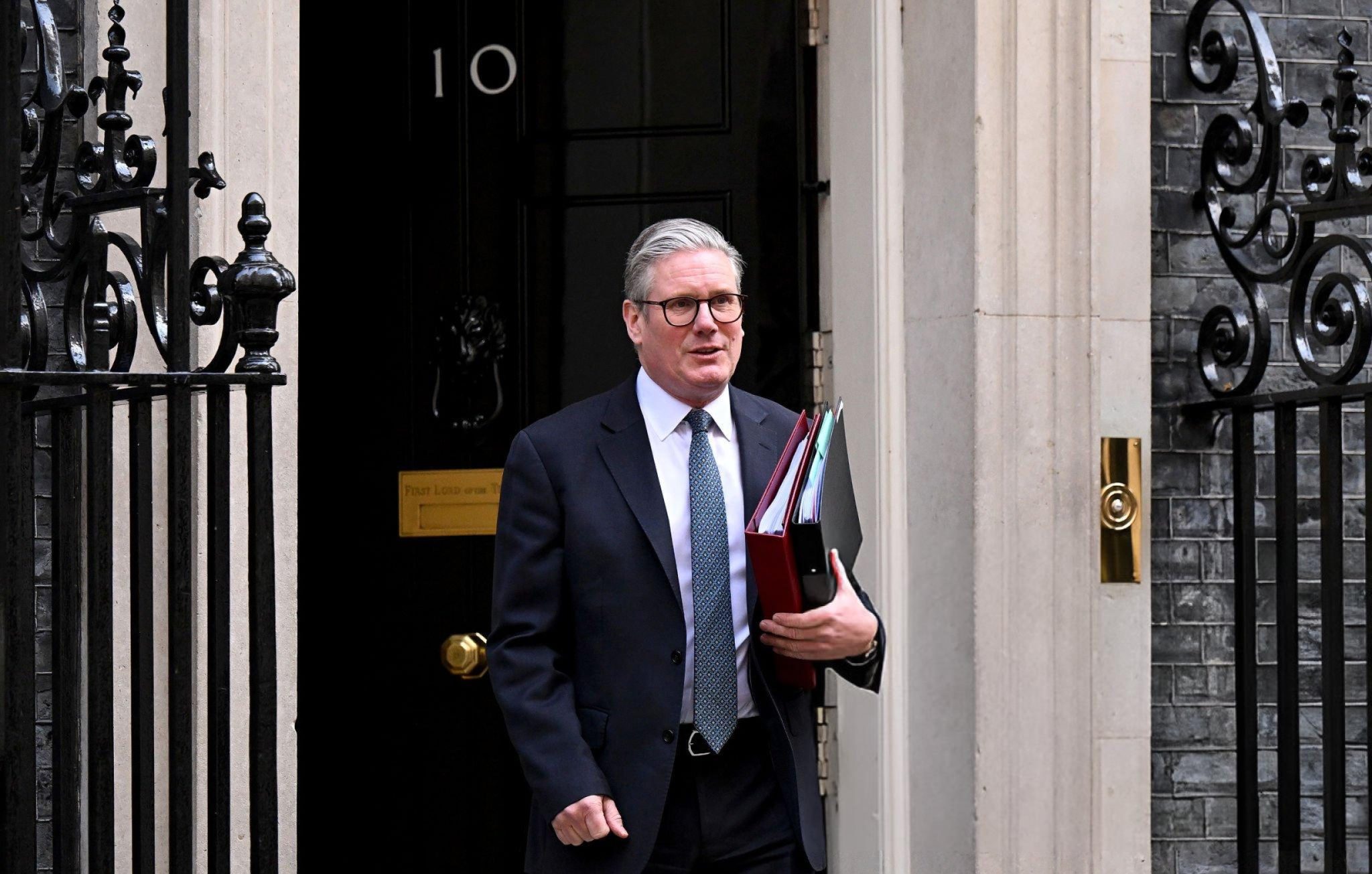Sir Keir Starmer has called for “cool heads” and national unity as global financial markets were rocked by a wave of economic instability following sweeping new tariffs imposed by US President Donald Trump. The Prime Minister urged the country to rise to what he described as “the great challenge of our age”, amid mounting fears of a deepening global trade war.
Markets plummeted on Monday as investors reacted to President Trump’s announcement of fresh tariffs on international imports, including a 25% tax on British cars and 10% on general UK exports to the United States. The FTSE 100 suffered a sharp fall of 4.38%, closing at 7,702.08 – the lowest since March 2024. Across the Atlantic, the Dow Jones fell by 1.52% while the S&P 500 slid 0.96%. Sterling also took a hit, falling 1.28% to 1.272 against the dollar by the close of trading in London.
Speaking during a visit to the Jaguar Land Rover (JLR) plant in the West Midlands – one of the British industries directly affected by the new tariffs – Sir Keir reaffirmed the Government’s backing for the automotive sector.
“These are challenging times,” he told workers. “But we’ve come here today because we are going to back you to the hilt. This visit is a statement of intent.”
He continued: “This is a moment for cool heads – nobody wins from a trade war. But it’s also a moment for urgency. We have to rise together as a nation to the great challenge of our age – to renew Britain and secure our future in this new era of global instability.”
Sir Keir warned that the economic turbulence was part of a “completely new world” shaped by the geopolitical shocks of recent years, including the war in Ukraine and ongoing tensions between major powers. He insisted that Britain must not only negotiate firmly with the United States but also seek new trade opportunities around the globe.
“We will fight for the best deal with the US – those discussions have been happening intensely over the last few days,” he said. “But we will also work with our partners around the world to reduce trade barriers, accelerate trade deals, and champion the cause of free and open trade.”
Despite hopes in Whitehall for a breakthrough agreement with Washington, President Trump showed no sign of softening his stance. On social media, he called for Americans to “be strong, courageous and patient”, promising “greatness will be the result”. He also threatened further tariffs on Chinese imports, increasing fears of wider economic fallout.
In response to the automotive industry’s concerns, Sir Keir announced new flexibility in the UK’s zero emission vehicle (ZEV) mandate. While the sale of petrol and diesel cars will still be banned from 2030, sales of certain hybrids will now be allowed until 2035.
Asked whether more green targets might be relaxed to protect businesses, the Prime Minister replied: “There’s a global race for the jobs of the future in relation to net zero. I don’t think now is the time to step away from that race. But we’re not ideological – we’re pragmatic. If there are flexibilities that help, like what we’ve done today for JLR, of course we will take those steps.”
Reform UK leader Nigel Farage, a long-time supporter of Mr Trump, described the tariffs as “a bit excessive”, though he conceded the former president was keeping his campaign promises. “The impact of it has been bigger than he could have predicted,” Farage said.
Meanwhile, Conservative leader Kemi Badenoch accused the Prime Minister of not acting decisively enough. “He’s not doing very much yet,” she told reporters. “What we want to see is a trade deal that helps lower the tariffs. As for today’s announcement on ZEV targets – that should have happened a long time ago.”
As the dust settles on a tumultuous day for markets, pressure is mounting on the Government to strike a balance between protecting British industry, upholding green targets, and navigating a rapidly shifting global economic landscape.






